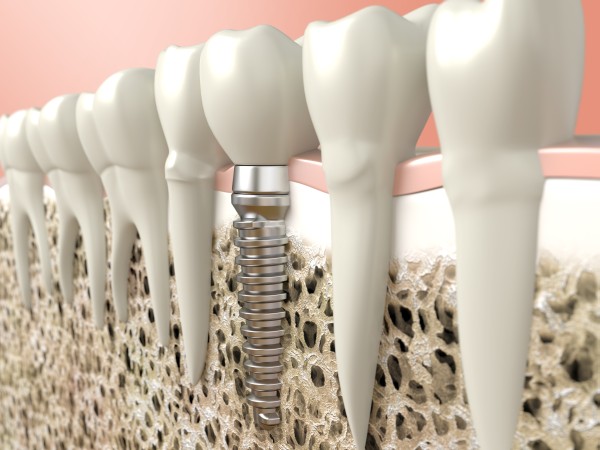Dental Implants: Your Best Option for Replacing Missing Teeth
 Dental implants are your best option for replacing missing teeth. This statement may seem profound and even a little egotistical coming from a dental implant dentist, but at the end of the day, it is also profoundly true. Dental implants are changing the entire conversation with regard to how people view tooth loss today, and more importantly, how they view replacing those teeth. Gone are the days when you had to choose between wiring your teeth, getting cemented blocks, or having to deal with gooey adhesives to hold your teeth in place. Today dental implants, your best option for replacing missing teeth, actually replace the root of a lost tooth along with the surface visible tooth, also known as the crown. As a result, dental implants are stronger, more stable, and longer-lasting than the competition, which is in part what makes dental implants your best option for replacing missing teeth. With any new technology, people always want to know if they are eligible for treatment. In simple and technical terms, the answer is always yes when it comes to dental implants. However, there are a few important caveats that we must mention. First, you have to be healthy enough to undergo oral surgery. Dental implants are placed by a skilled oral surgeon or periodontist since they require the implant to be placed directly into the jawbone. Second, you cannot have habits that are severely detrimental to your teeth and health, like excessive smoking or alcohol consumption. Finally, some diseases and their treatments may preclude or delay you from receiving implant dentistry as a tooth replacement option. Some of these include people who have uncontrolled diabetes, patients who are undergoing but have not yet controlled their periodontal disease, and patients who are undergoing radiation treatment for cancer.
Dental implants are your best option for replacing missing teeth. This statement may seem profound and even a little egotistical coming from a dental implant dentist, but at the end of the day, it is also profoundly true. Dental implants are changing the entire conversation with regard to how people view tooth loss today, and more importantly, how they view replacing those teeth. Gone are the days when you had to choose between wiring your teeth, getting cemented blocks, or having to deal with gooey adhesives to hold your teeth in place. Today dental implants, your best option for replacing missing teeth, actually replace the root of a lost tooth along with the surface visible tooth, also known as the crown. As a result, dental implants are stronger, more stable, and longer-lasting than the competition, which is in part what makes dental implants your best option for replacing missing teeth. With any new technology, people always want to know if they are eligible for treatment. In simple and technical terms, the answer is always yes when it comes to dental implants. However, there are a few important caveats that we must mention. First, you have to be healthy enough to undergo oral surgery. Dental implants are placed by a skilled oral surgeon or periodontist since they require the implant to be placed directly into the jawbone. Second, you cannot have habits that are severely detrimental to your teeth and health, like excessive smoking or alcohol consumption. Finally, some diseases and their treatments may preclude or delay you from receiving implant dentistry as a tooth replacement option. Some of these include people who have uncontrolled diabetes, patients who are undergoing but have not yet controlled their periodontal disease, and patients who are undergoing radiation treatment for cancer.
Dental implants your best option for replacing missing teeth, have an extremely high rate of success. We prefer to measure the success of a dental implant in terms of the number of decades of usage you get out of it without needing additional procedures or without any problems. Nationally it has been found that the success rate of dental implants, your best option for replacing missing teeth, is between 94% and 98%, making these the most successful of all dental prosthetic devices. This high rate of success is not an accident. Rather, it is because of careful preparation, making sure that you are ready and healthy enough for dental implants in the first place. To ensure this, we will first conduct a comprehensive examination of your mouth and jawbone, which involves dental imaging. Dental imaging, including X-rays and a CT scan, will be used to ensure that your jawbone is dense enough to support and sustain the dental implants your best option for replacing missing teeth.
If we find that the jawbone is dense enough, we can move to the implant stage in a process known as immediate implant placement. In other cases, when the bone is not dense enough, we will need to consider options like an alveolar bone graft to provide a block of bone dense enough to place the implant in. If you do require an onlay bone graft surgery, you can expect the recovery time to be around six months, after which we can proceed to placing the implant itself.